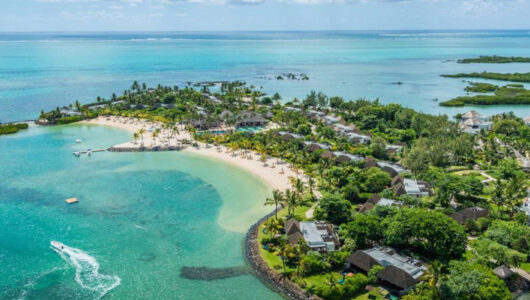Mauritius
Mauritius is an island nation in the Indian Ocean that is attracting considerable foreign investment. Having experienced steady economic growth for decades, Mauritius is one of the most business-friendly countries in Africa. Residence brings many benefits including lifestyle advantages, with additional benefits for Southern African Development Community citizens.

Malta Real Estate
Mauritius real estate
Mauritius has become an attractive destination for real estate investment, driven by foreign demand and a thriving tourism industry. Here’s a detailed overview of the current state of the Mauritian real estate market, acquisition guidelines, and restrictions for foreign buyers:
Market Overview
- Boom Driven by Foreign Demand: The Mauritian real estate market is experiencing a boom, largely fueled by foreign interest. The island’s strong tourism industry has spurred growth in the luxury rental market, particularly in North and West Mauritius.
- Economic Importance: Real estate is a crucial component of the Mauritian economy, contributing significantly to economic growth and stability. The market’s vitality is supported by low interest rates and a growing mortgage sector.
Benefits of Investing in Mauritius
- Attractive Location: Mauritius offers a convenient time zone, a high quality of life, a favorable climate, and a safe environment, making it an appealing destination for property buyers.
- Tax Incentives:
- Double Taxation Agreement: Mauritius has agreements with over 40 countries, including South Africa, to prevent double taxation, which benefits foreign investors.
- No Capital Gains or Inheritance Tax: Investors benefit from the absence of capital gains and inheritance taxes on property transactions, enhancing the financial attractiveness of investing in Mauritius.
- Investment Security: The country offers a secure and reliable investment environment. Foreign investors can also obtain a permanent residence permit through the Mauritius Residence by Investment Program.
- Lifestyle and Amenities: Mauritius boasts a multilingual and multicultural community, excellent international schools, good private healthcare, and modern infrastructure, making it a desirable location for living and investing.
Acquisition Guidelines
- Consult Reliable Sources: Prospective buyers should seek reputable real estate professionals and ensure that developers have a solid track record. This helps protect the investment and ensures that the property is of high quality.
- Transaction Management: To safeguard the investment, it is advisable to use a notary or escrow account for managing the transaction process. Direct payments to the seller should be avoided to mitigate risks.
Restrictions on Foreign Buyers
Foreign buyers are restricted to purchasing properties under specific schemes approved and managed by the Economic Development Board (EDB) of Mauritius. These schemes include:
- Integrated Resort Scheme (IRS): This scheme allows foreign buyers to purchase property within integrated resorts, which are typically high-end developments offering luxurious amenities.
- Real Estate Property Scheme (RES): The RES enables foreigners to buy properties within residential schemes designed to cater to international buyers, often with a focus on luxury and exclusivity.
- Property Development Scheme (PDS): The PDS is a more recent scheme that provides opportunities for foreigners to invest in real estate projects that promote local development and include a variety of property types.
- Smart City Scheme (SCS): The SCS involves buying property within designated smart city developments, which are planned communities designed to integrate smart technologies and sustainable living.
- Ground +2 Apartments: Foreign buyers can also purchase apartments with a minimum purchase price of approximately USD 147,000, typically located in multi-story residential buildings.
Mauritius offers a dynamic and growing real estate market with significant opportunities for foreign investors. The island’s appealing lifestyle, favorable tax incentives, and secure investment environment contribute to its attractiveness. Foreign buyers can invest in properties through various schemes managed by the Economic Development Board, each catering to different investment preferences and requirements.
Frequently Asked Questions (FAQ)
How can immovable property in Mauritius be acquired?
There are only a few steps to follow for this process: sign a reservation contract, provide all the required documents, pay a deposit into a dedicated escrow account, submit the application for permission to acquire property with all the relevant documentation, and complete the acquisition by signing the deed of sale.
Does the applicant need to open a bank account in order to purchase property, and if so, what is the procedure?
No, there is no need; however, it is advisable to do so. Funds can be transferred to the notary directly.
What additional expenses will the real estate transaction incur?
Additional expenses include the registration duty fee of 5% of the net price, notary fees, and the application fee for the letter of approval through the Economic Development Board of Mauritius at a cost of USD 500.
What kind of returns can be expected from property investment in Mauritius?
Depending on the type of property, when the estate is fully operational, foreign investors could expect around 4% for smaller premises such as apartments or townhouses and duplexes.
How is rental income taxed?
At 15% of the individual income tax.
What other immovable property-related taxes and charges are imposed in Mauritius?
None; only monthly syndic or levy fees are applicable. In Mauritius, there is no land or property tax.
